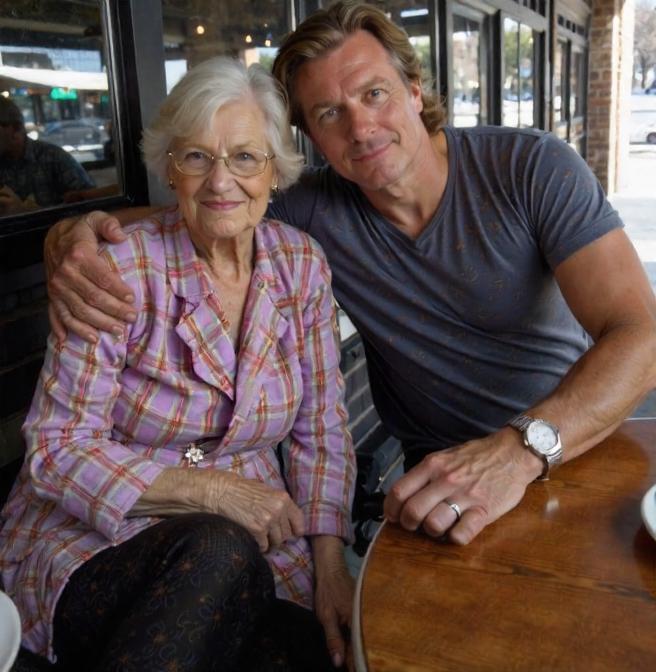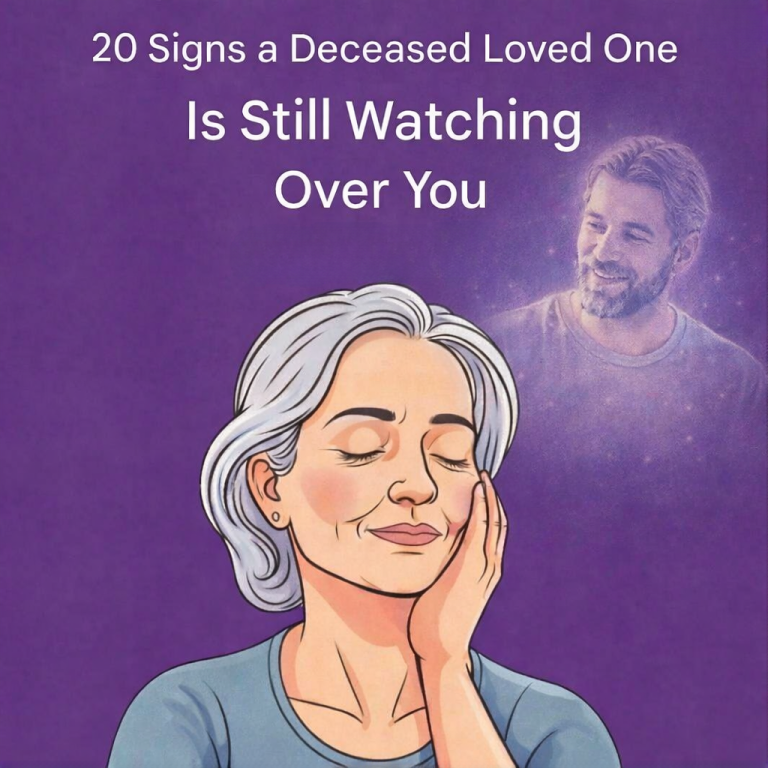
Four years ago, I married Ethan. His mother was gentle yet reserved, and the two of us only met on rare occasions.
Ethan once told me that his mother deeply valued her privacy. I didn’t question it. I simply accepted it as part of who she was.
Life was peaceful—easy, even—until one afternoon when he called my office, his voice trembling.
“Kate… the test results are bad. The doctors diagnosed cancer. She has to start chemotherapy immediately.”
The news shattered me.
I tried to stay calm and reassured him, “Don’t worry. We’ll do whatever’s necessary.”
But chemotherapy was expensive, and my insurance covered less than half. I began staying late at work, taking extra assignments, and draining every bit of my savings to help.
By the end of that year, I had given Ethan $113,000.
Every time I handed him money, he kissed my forehead and murmured,
“You’re saving her life, Kate. I don’t know what I’d do without you.”
I believed him.
Every. Single. Word.
One Saturday, after grocery shopping, I saw our elderly neighbor, Mrs. Parker, trimming her rose bushes. She approached me with genuine concern.
“Oh, Kate, honey, how are you? You look exhausted…”
I sighed.
“I’m alright. It’s just… Ethan’s mom is sick. I’m working reduced hours to cover the medical bills.”
She blinked at me in confusion.
“Oh, dear… you must be mistaken. Ethan’s mother moved to Arizona about ten years ago. As far as I know, she’s perfectly fine.”
Her words hit me like ice water.
I stood there frozen, my heart pounding in my ears.
If she was fine… what on earth had I been giving him money for?
I forced a smile, acting as if there had been a misunderstanding, but inside, panic spread like wildfire.
I knew I had to investigate.
Two days later, when Ethan told me he would visit his mother in the hospital, I clenched my jaw and said nothing.
But an hour after he drove off, I followed.
My hands shook as I parked across the street from a building.
A cheap, rundown building.
Not a hospital.
A motel.
A shiver raced down my spine as I whispered,
“Wait… how could this be possible?”
I sat in my car, gripping the steering wheel so tightly my knuckles turned white. I watched him through the cracked blinds of the shabby motel room he entered.
For twenty minutes, nothing happened.
Then the door opened.
A woman stepped out.
Not old.
Not frail.
Definitely not his mother.
She was in her mid-twenties, wearing a tank top, laughing as she leaned into Ethan’s chest. He wrapped his arms around her waist — the same arms that held me every night — and kissed her.
My stomach lurched.
The truth was uglier than I imagined.
He wasn’t caring for a dying mother.
He was supporting another woman.
With my money.
I reached for my phone, my vision blurring with tears.
Call police?
Call a friend?
Call anyone?
But something inside me went cold.
I wasn’t going to react.
Not yet.
I needed to know everything first.
For the next week, I followed him after work, pretending nothing was wrong.
What I found made me sick.
He wasn’t just seeing her.
He was living a double life.
He told me he stayed late at work for “overtime”?
He was with her.
He said he was buying medications and hospital supplies?
He was paying her rent, buying her clothes, taking her to restaurants.
And every time he came home late, exhausted, smelling faintly of cheap perfume, he would kiss me and say,
“She’s struggling, Kate. We’re almost through the worst of it.”
The Confrontation I Never Saw Coming
When I finally had enough proof, I contacted a lawyer.
I set everything in motion quietly.
One night, after he came home, he dropped his keys on the table and exhaled dramatically.
“They increased Mom’s chemo sessions again… I don’t know how much longer—”
I cut him off.
“Ethan, can we talk?”
He looked startled, but sat down.
I placed a folder on the table and slid it toward him.
Receipts.
Photos.
Screenshots.
Everything.
His face turned chalk white.
“Kate… I can explain.”
“Oh?” I said calmly, folding my hands. “Explain why your mother is living in Arizona while you’re paying for motel rooms and lingerie?”
He swallowed hard.
“Kate, listen—”
“No,” I said sharply. “For once in your life, you listen.”
He opened his mouth again, but I raised a hand.
“I followed you, Ethan. I know everything.”
Silence fell like a heavy blanket.
He couldn’t lie — not this time.
He stuttered, “It—it wasn’t supposed to go this far. I just— I needed money, and she—she needed help and—”
I laughed.
I actually laughed.
“Your girlfriend needed help? So you stole from your wife? Lied about your own mother dying? Took over a hundred thousand dollars — my savings — for your little affair?”
He looked down, his voice barely audible.
“I’m sorry…”
“Sorry?” I whispered. “You’re going to be much sorrier.”
I stood, walked to the drawer, and pulled out a set of documents.
“See, while you were at the motel, I was at my lawyer’s office. You’ll notice the divorce papers are already drafted. And since you used my money for your affair… that qualifies as marital fraud.”
He looked like he might faint.
“I’m not signing—”
“You already did.”
He blinked.
I held up a photo of his signature — the one he scribbled on a ‘delivery form’ a week ago.
It wasn’t a delivery form.
My lawyer worked fast.
His eyes widened as realization broke over him.
“You tricked me…”
“No,” I said, calm and icy. “You tricked me. I simply returned the favor.”
The Final Blow — Poetic Justice
A month later, the divorce was finalized.
He left the house with nothing—legally nothing belonged to him because of the fraud.
The motel girlfriend?
She left him too once she realized the money was gone.
And Ethan?
He moved back in with his mother in Arizona — the one he pretended was dying — because he had nowhere else to go.
I heard from Mrs. Parker that he works part-time now, delivering groceries in the heat.
Meanwhile, I rebuilt my savings, regained my peace, and bought myself something I hadn’t felt in years:
Freedom.
Sometimes betrayal breaks you.
But sometimes?
It teaches you exactly how powerful you really are.



